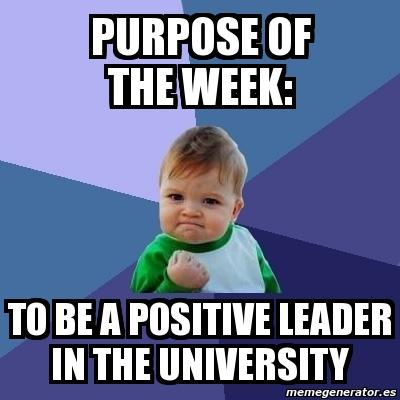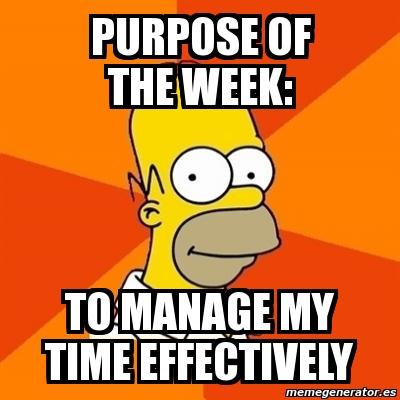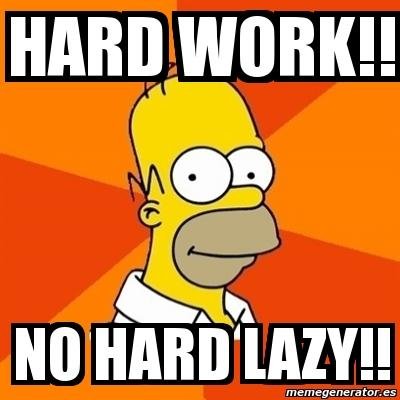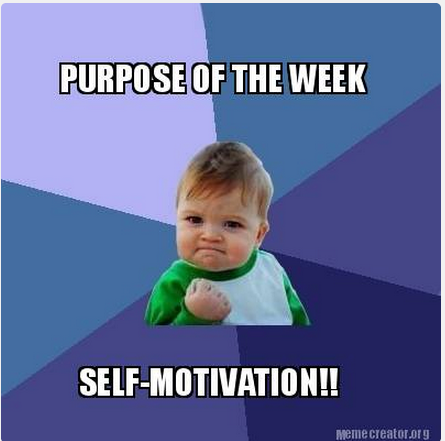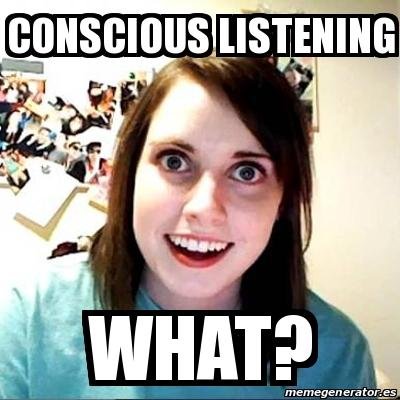#CoLabOnL2
SYLLABUS & STUDY GUIDE
"Control I & Lab"
@JohnTabordaG, Ph.D (Unimagdalena,Col)
Electronics Engineering Program
Research Group "Magma Ingeniería"
Universidad del Magdalena
Santa Marta, Colombia
2014
PART 1: Course Information
Instructor Information
Name: John Alexander Taborda, Ph.D.
Office: Ed. "Ricardo Villalobos", Of. 3E302
Office Hours: 8AM-12M (Friday)
E-mails: jatabordag@gmail.com, jtaborda@unimagdalena.edu.co
Twitter: @JohnTabordaG
Hashtags: #CoLabOnL2, #MagoLab, #CetepTEDClub
Cetep Meeting: Monday 10AM-12M (Salón de Dibujo Manual)
Language Learning Platform: Duolingo
Course Description
- Classical Theory of Control Systems (Main Competence)
- English-Medium Instruction (EMI) Course. Teaching and Learning in Second Language (L2). (Transversal competence on L2)
- Coding in Matlab, Labview and Open-Source Technologies (SW: Scilab, Python; HW: Arduino, RPi) (Transversal competence in coding)
- Flipped Classroom (Lectures at home, "Homework" in classroom)
- Conectivism and Social Constructivism
- Blended Learning (LBL and PBL).
- LBL: Lecture-Based Learning (60%)
- PBL: Project-Based Learning (40%)
Evaluation
- LBL: Lecture-Based Learning (60% - 300points)
- PBL: Project-Based Learning (40% - 200 points)
First Grade Period (150 points)
- LBL: 100 points (Portfolio (25 pts.), Lecture Assessment Activities (50 pts.), Reading Assessment Activities (25 pts.)).
- PBL: 50 points (Find information and interact with maker community)
Second Grade Period (150 points)
- LBL: 100 points (Portfolio (25 pts.), Lecture Assessment Activities (50 pts.), Reading Assessment Activities (25 pts.)).
- PBL: 50 points (Make project and outside exposition)
Third Grade Period (200 points)
- LBL: 100 points (Portfolio (50 pts.), Lecture Assessment Activities (50 pts.)
- PBL: 50 points ( Youtube video (50 pts.), Project Report (50 pts.))
Important Dates
- Class Start: August 4
- First Period Deadline: September 19
- Second Period Deadline: October 24
- Third Period Deadline: November 21
- Ratings Deadline: November 27
- Class End: November 29
Textbook & Course Materials
[1]. Roberge, James. RES.6-010 Electronic Feedback Systems, Spring 2013. (MIT OpenCourseWare: Massachusetts Institute of Technology), http://ocw.mit.edu/resources/res-6-010-electronic-feedback-systems-spring-2013 (Accessed 30 Jun, 2014). License: Creative Commons BY-NC-SA
[2]. Astrom, K. J., Murray, R. M. Feedback Systems and Introduction for Scientists and Engineers
[3]. Dynamics Systems and Controls. Saylor Academy.
[4]. Control Systems Library for Python.
LEARNING MOMENTS in FLIP TEACHING each WEEK
Week 1: INTRODUCTION

OUTLINE - Week 1
- Why is the course in English? (Discussion)
- Syllabus "Control I & Lab"
- Content and Language Integraded Learning
- Methodology: Flipped Classroom
- Blended Learning (PBL and LBL)
- Learning Moments (Before, In, After, Lifelong)
- Activities, percentages and dates.
- Past, Present and Future of "Control Technology"
Objectives Week 1
- Students will known the reasons to learn in second language (L2).
- We will known some techniques and strategies to acquire L2.
- Students will understand the mechanism to integrate content and language learning.
- We will identify relevant aspects in the Past, Present and Future of "Control Technology".
- Students will know the syllabus of "Control I & Lab" course.
- We will know the "Flipped Classroom" approach and how to apply it.
LEARNING MOMENTS - Week 1
LIFELONG LEARNING - Week 1
Week 2:
BACKGROUND OF DYNAMICAL SYSTEMS

OUTLINE - Week 2
- DynSys TOP 5: Main topics of "Dynamical Systems Course" necessary "Control I & Lab".
- Workshop of Dynamical Systems
- Jigsaw Activity (Cooperative Learning)
Objectives Week 2
Students will review the most relevant topics of "Dynamical Systems Course" necessary to begin "Control I & Lab".
We will discuss about advantages and disadvantages of "English mania".
Students will work in a cooperative way in order to accelerate the review of previous concepts.
Students will code in Matlab to show their background knowledges.
LEARNING MOMENTS - Week 2
LIFELONG LEARNING - Week 2
Week 3:
CLOSED LOOP CONTROL

OUTLINE - Week 3
- Introduction of "Closed Loop Control".
- Khan Academy: Intro JS
- Formative Assessment
- Maker Community.
Objectives Week 3
Students will understand the usefulness and basic principles of "feedback control" or "closed loop control".
We will practice writing short texts in English using Online Writing Lab.
Students will code on Arduino and identify the advantages of open-source technologies.
LEARNING MOMENTS - Week 3
LIFELONG LEARNING - Week 3
Week 4:
Routh Hurwitz

OUTLINE - Week 4
- Introduction of "Routh Hurwitz Criterion".
- Khan Academy: Intro JS
- Matlab Workshop
- Node.JS
Objectives Week 4
Students will understand the usefulness and basic principles of "stability" and "Routh Hurwitz Criterion".
We will practice writing short texts in English using Online Writing Lab.
Students will code on Arduino and identify the advantages of open-source technologies.
LIFELONG LEARNING - Week 4
Week 5:
Routh Hurwitz & Control Actions

OUTLINE - Week 5
- Routh Hurwits Criterion & Control Actions.
- Khan Academy: Intro JS
- Matlab Workshop
- Node.JS
Objectives Week 5
Students will apply Routh Hurwitz Criterion.
We will practice writing short texts in English using Online Writing Lab.
Students will code on Arduino and identify the advantages of open-source technologies.
Week 6:
Routh Hurwitz & Steady State Error

OUTLINE - Week 6
- Steady State Error
-
Matlab Workshop (Ident- RLC circuit)
- Project - First Period (Palma-bot)
Objectives Week 6
Students will apply Steady State Error Analysis.
We will practice English with reading and listening activities (before class).
Students will code on Arduino and identify the advantages of open-source technologies.
LIFELONG LEARNING - Week 6

Week 7:
Steady State Error

OUTLINE - Week 7
- Steady State Error - Classification
-
Matlab Workshop
- Project - First Period
Objectives Week 7
Students will apply Steady State Error Analysis.
We will practice English with reading and listening activities (before class).
Students will code on Arduino and identify the advantages of open-source technologies.
LIFELONG LEARNING - Week 7

Week 8:
Root Locus

OUTLINE - Week 8
- Root Locus Method
-
Matlab RLocusGUI
- Project - Second Period (Lago-bot)
Objectives Week 8
Students will apply Root Locus Method
We will practice English with reading and listening activities (before class).
Students will code on Arduino and identify the advantages of open-source technologies.
Week 9
TITLE
PRESENTATION
Objectives Week 9
- Content
- Language
- Coding
- Content
- Language
- Coding
Diagnostic Assessment - Week 9
Lecture 9
Assessment - Week 9
Week 10
TITLE
PRESENTATION
Objectives Week 10
- Content
- Language
- Coding
- Content
- Language
- Coding
Diagnostic Assessment - Week 10
Lecture 10
Assessment - Week 10
Week 11
TITLE
PRESENTATION
Objectives Week 11
- Content
- Language
- Coding
- Content
- Language
- Coding
Diagnostic Assessment - Week 11
Lecture 11
Assessment - Week 11
Week 12
TITLE
PRESENTATION
Objectives Week 12
- Content
- Language
- Coding
- Content
- Language
- Coding
Diagnostic Assessment - Week 12
Lecture 12
Assessment - Week 12
Week 13
TITLE
PRESENTATION
Objectives Week 13
- Content
- Language
- Coding
- Content
- Language
- Coding
Diagnostic Assessment - Week 13
Lecture 13
Assessment - Week 13
Week 14
TITLE
PRESENTATION
Objectives Week 14
- Content
- Language
- Coding
- Content
- Language
- Coding
Diagnostic Assessment - Week 14
Lecture 14
Assessment - Week 14
Week 15
TITLE
PRESENTATION
Objectives Week 15
- Content
- Language
- Coding
- Content
- Language
- Coding
Diagnostic Assessment - Week 15
Lecture 15
Assessment - Week 15
Week 16
TITLE
PRESENTATION
Objectives Week 16
- Content
- Language
- Coding
- Content
- Language
- Coding
Diagnostic Assessment - Week 16
Lecture 16
Assessment - Week 16
Syllabus-Control1-EMI
By John Alexander Taborda
Syllabus-Control1-EMI
Syllabus of course "Control I and Lab" in Electronics Engineering by John Taborda, Ph.D. (Universidad del Magdalena, Colombia)
- 1,875


